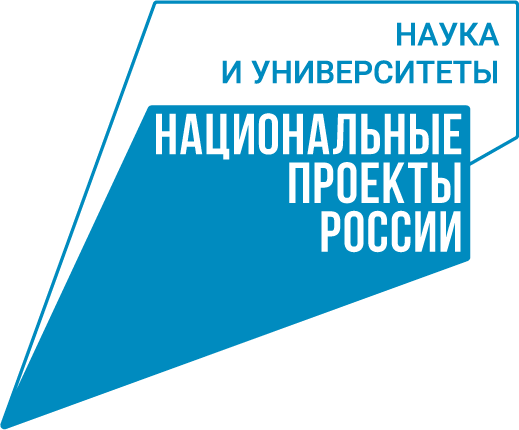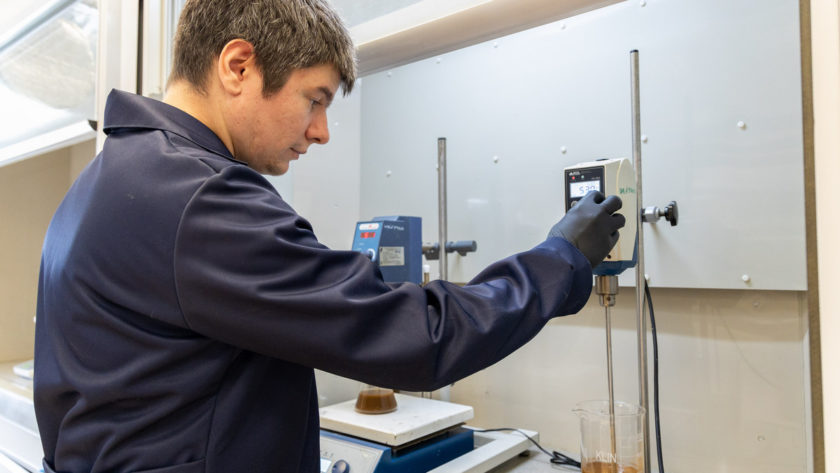Based on the ongoing research, students defend their theses and enroll in Master’s and Postgraduate programs. Photo: Rodion Narudinov.
Ongoing research at Ural Federal University (UrFU) is driving significant advancements in the extraction of non-ferrous and precious metals from complex polymetallic raw materials. These developments are increasingly in demand by mining and metallurgical enterprises.
At the forefront of these innovations is the Youth Scientific Laboratory of Advanced Technologies for Comprehensive Processing of Mineral and Technogenic Raw Materials at INMT UrFU. This work is part of the Ural Interregional Research and Educational Center for Advanced Production Technologies and Materials.
The laboratory is conducting extensive research to develop modern, highly efficient processes for extracting non-ferrous and precious metals. Over the past 18 months, they have tested a new technology using active seed aluminum hydroxide to boost the productivity of alumina solution decomposition at the RUSAL Krasnoturyinsk plant.
“Based on our analysis and the factors identified during pilot tests, we recommended implementing an industrial system with automatic dry reagent feeding and active seed dosing at the RUSAL Krasnoturyinsk plant,” said laboratory head Denis Rogozhnikov. “Further research is planned to enhance alumina solution productivity at the RUSAL Kamensk-Uralsky plant.”
Additionally, unique research is underway to incorporate complex sulfide gold-bearing ores from Uzbekistan into the production cycle. This project, in collaboration with the Navoi Mining and Metallurgical Combine, the world’s fourth-largest gold producer, has achieved a 90% gold recovery rate. Optimization for subsequent pilot tests is ongoing with specialists from the combine and the Navoi State Mining and Technological University. The work is expected to conclude by year-end, followed by industrial tests.
Denis Rogozhnikov highlights the growing demand for these technologies, with significant interest from the Ural Mining and Metallurgical Company, Svyatogor, Bashkir Copper, Pervouralsk New Pipe Plant, and Kyrgyzaltyn.
In the past year alone, the laboratory staff has secured four grants from the Russian Science Foundation. Currently, six grants are being implemented, which will significantly enhance research capabilities and attract new industrial partners. The scope of these grants is broad, ranging from processing alumina production waste and gold-bearing ore to recycling used displays and batteries to extract valuable metals.
The laboratory’s work is particularly crucial given the global depletion of high-quality raw material reserves. As a result, enterprises face two options: develop new deposits or process existing raw materials and production waste.
“For Russia, the accumulation of large volumes of waste is a significant issue. It’s crucial to reduce the environmental impact on the territory,” says Denis Rogozhnikov. “This can be achieved by mitigating existing damage and creating new technologies that minimize the generation of new waste.”
The laboratory comprises 20 staff members and actively involves students in its work.
“Based on our research, students defend their theses and enroll in master’s and doctoral programs. Many receive prestigious scholarships, such as the Stanislav Naboychenko Scholarship, awarded by the President of Russia,” notes Denis Rogozhnikov. “We have a very strong, modern material base. Recently, with the support of the university administration, we acquired an optical emission spectrometer and a laser particle size analyzer. Sometimes we work with gold in nano-sized particles, known as ‘invisible gold.’ With our expertise and equipment, we can concentrate and extract this gold.”
Author: Eduard Nikulnikov (UrFU)

